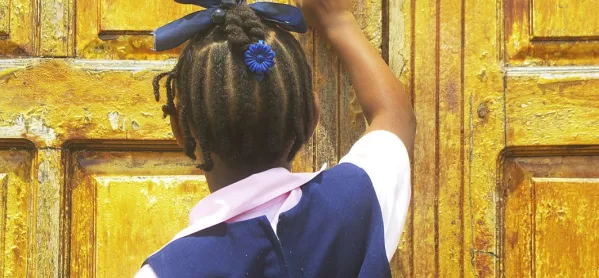Children with special needs are far less likely than their peers to be admitted to Reception in the primary where they attended preschool, research has found.
The report, published by the London School of Economics and Political Science, looked at the educational record of more than half a million children born in the 2006-07 academic year, across nearly 25,000 settings.
Insight: Councils warn of ‘national special needs emergency’
Profile: ‘SEND schooling needs to counter fear and offer hope’
Opinion: ‘Too often our school system excludes and divides’
It found that 26 per cent of children with statements of special educational needs or disability (SEND) do not go on to Reception class in the school where they went to preschool. By contrast, only 18 per cent of children with “no recorded SEND” change school before their Reception year.
Dr Tammy Campbell, one of the authors of the study, suggests that schools are avoiding admitting pupils who may adversely affect their results.
“Funding cuts combined with target-based school accountability measures mean that schools are disincentivised from admitting these pupils,” she said. “We intend to track changes over recent years in upcoming research.”
The report says: “One potentially positive reason for this is if children are moving to access better provision for their formal schooling.
“But disruption can be particularly difficult for some children in this group - and there is also evidence that some schools discourage (more or less explicitly) the attendance and admission to Reception of children with complex needs, resulting in them moving to alternative institutions.”
Some ethnic groups were similarly affected: 25 per cent of Black Caribbean children who attend a school nursery move for their Reception year, compared with 17 per cent of White British children and 12 per cent of Bangladeshi children.
Inequalities in the experience of early education in England: Access, peer groups and transitions, which was funded by the Nuffield Foundation, recommends that local authorities are given the power and resources to address higher levels of transitions between schools for children with statements and some minority ethnic groups.
It states: “Recent funding cuts and reforms have reduced authorities’ capacity to take action to understand and address inequalities in early-years provision.”
But it also suggests that there might be more positive reasons for the trend.
“One potentially positive reason for this is if children are moving to access better provision for their formal schooling,” it states.
“But disruption can be particularly difficult for some children in this group - and there is also evidence that some schools discourage (more or less explicitly) the attendance and admission to Reception of children with complex needs, resulting in them moving to alternative institutions.”
The report also found that summer-born children are slightly less likely than autumn-born children to attend a school nursery. They are therefore more likely to move to a different institution for Reception, and to enter primary school with no peers known from preschool.
It also found that, in 2011, pupils in preschools were very likely to meet peers from different economic backgrounds. Only three per cent of children from persistently poor families attended preschool with a majority of pupils whose families were also persistently poor.
However many preschools had no low-income children on their rolls.





